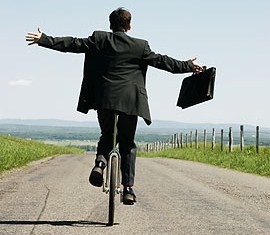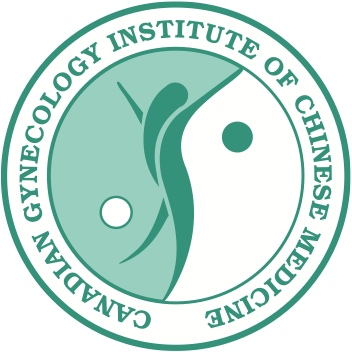What can we do about Pre- Menopausal Syndroms (PMS) and other disorders caused by “stagnation”?
This short blog is an excerpt from the last post about PMS. The PMS post was incredibly detailed and just in case this last part got drowned in words and tables, I think it is extremely important to repost the most vital information. It is information about what we can do every day to help combat not only PMS but all sorts of pain and emotion due to stagnation. So, without further ado:
Liver Qi Stagnation – also known as Qi Stagnation is one of the best known pathologies in Chinese Medicine. It is most often associated with stress and emotional instability and in this day and age, especially when living in the city it can be difficult to not be stressed, from traffic to work and family obligations, pollution, and social media pressure, it is so easy to become stagnant. Liver Qi stagnation is one of the leading causes of all gynecological AND emotional disturbances. From menstrual irregularities, painful periods and PMS to difficulty dealing with anger and depression, Liver Qi stagnation is one of the main culprits for all of it.
In Chinese Medicine, the Liver is responsible for storing the Blood, maintaining the freeflow of Qi, controlling emotional activity, preventing stagnation of Qi and Blood, it secretes bile for digestion, controls the tendons, muscles and ligaments, manifests in the nails and opens into the eyes. According to Western Medicine, the liver has a large role in metabolism, glycogen storage, decomposition of red blood cells, plasma protein synthesis, hormone production and detoxification. The language used to describe the Liver (Chinese Medicine) and the liver (Western Medicine) are different, though they function quite similarly. Therefore it is imperative that both the Liver and the liver function smoothly.
Chinese Medicine is a remarkably efficient way to alleviate any gynecological problems as well as emotional instabilities. Regular acupuncture treatments and herbal medicine regiments are great ways to naturally relieve any symptoms, but there is more that can be done.
The ultimate goal of TCM is prevention. That means that as practitioners we have an obligation to our patients to help them help themselves – to know more about their bodies and constitutions to help prevent the disease from reoccurring, or other diseases from manifesting. This means helping our patients to become all that they can be by properly taking care of themselves based on their constitution. For clients, this means picking your practitioners brain about easy things you can change or implement at home to get the best results not only from your treatments but also from your life. Included here are some general tips for health.
Exercise
Getting your Blood and Qi moving regularly will help to combat any stagnation due to poor posture at work, emotional changes or stress. Be sure to let your liver ‘breathe’ by stretching out the ribcage and allowing proper blood flow to the organs.

Diet
Generally, TCM recommends staying away from dairy and greasy foods since they are more difficult to digest and result in accumulations and toxins in the body. Instead, eating lots of leafy green vegetables is good for the Liver. It is important to at least slightly cook or steam veggies until they become bright. When food is cold and raw the stomach needs to warm and cook the food itself, requiring more energy. By warming and cooking your food, you are effectively beginning the digestive process and conserving your own energy. For those with heat signs: avoid red meat and spicy/spiced foods which will exacerbate symptoms. Instead eat cooling foods such as veggies. For those with cold signs, heavily spiced foods should still be avoided, instead add ginger and making sure your dishes are warm or hot before eating is best. For those with deficiency signs, it is imperative to cook your food first, making it easier to digest. Eating foods like rice, potato, sweet potato and Chinese yam are excellent foods for balancing and promoting digestion and giving your body the energy it needs. For more information, see our post on diet.
Down Time
TAKE SOME TIME TO BREATHE! Have you ever noticed that when you start thinking or focusing hard on something, your breath becomes shallow… some people even stop breathing? Breathing not only nourishes our body with oxygen, it helps to circulate the blood, thereby removing accumulations and toxins. The physical act – the movement of the lungs and diaphragm – helps to massage the organs and ensure proper blood and energy flow. By taking the time, obviously the more the better – to breathe, whether you count 3 breaths or set a timer for 5, 10, or 30 minutes a day to focus on breathing, you are helping your body rebalance and ward off the stagnations that accumulate because of every day life. Take deep breaths into your lower abdomen to help move the diaphragm, take deep breaths into the chest to separate your intercostals spaces, and visualize deep breaths into your head to clear out thoughts. Every single cell in our body respirates and by taking the time to breathe and focus only on our breath we can help to soothe and calm a stressful life. Practices such as yoga, qi gong, guided visualizations or meditation focus on breathing and can help with those who are restless and have difficulty sitting still.
Smile
Smiling, with not just your mouth, not just your eyes, but with your mind. You should be able to feel a smile all the way to the back of your head. When you smile that way your whole body will relax… don’t believe me? Just try! Then try smiling and breathing at the same time!

Taking time to exercise, find the right diet for you and taking some quiet time for yourself can do wonders for your mental and physical health, and it doesn’t have to take much time or effort. For any questions, concerns or would like more information, please contact us. We’d love to hear from you.
Remember: It is all about Balance!

Caroline Prodoehl, D. Ac.
